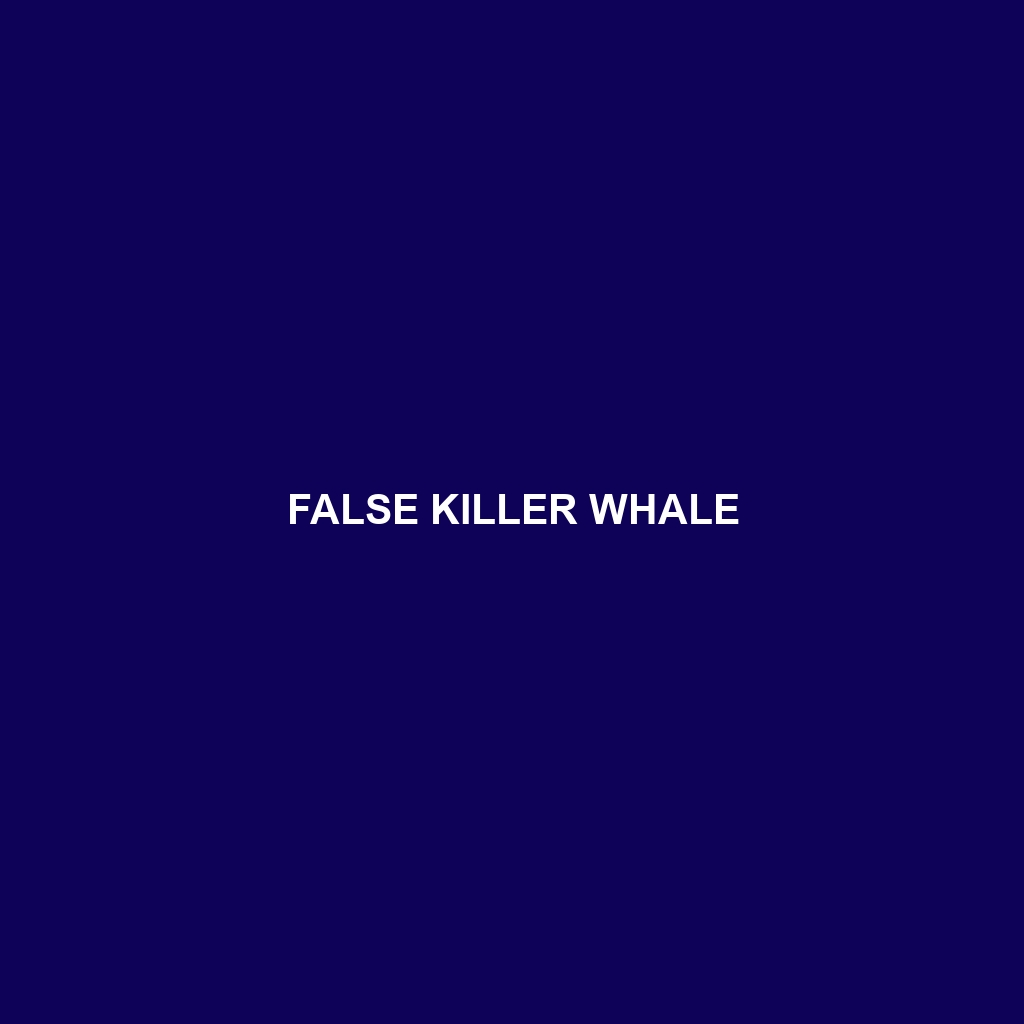False Killer Whale
Common Name: False Killer Whale
Scientific Name: Pseudorca crassidens
Habitat
The False Killer Whale is primarily found in tropical and subtropical oceanic regions worldwide. They inhabit areas of the Pacific, Atlantic, and Indian Oceans, often near continental shelves and islands. This species prefers warm waters and can also be spotted in deep oceanic areas, demonstrating a wide range of environmental adaptability.
Physical Characteristics
False Killer Whales are medium to large-sized dolphins, typically measuring between 15 to 20 feet long and weighing up to 2,300 pounds. They exhibit a robust, streamlined body with a distinctively rounded forehead and a long, slender beak. Their coloration varies from dark gray to black, with lighter undersides. One notable characteristic is their elongated pectoral fins and a dorsal fin that can reach over a foot high.
Behavior
These social animals are known for their strong group cohesion, often found in pods of 10 to 50 individuals. False Killer Whales engage in playful behaviors, such as breaching and riding the bow waves of boats. They are also known for their intelligence and complex vocalizations, which are believed to play a crucial role in pod communication.
Diet
As carnivorous mammals, False Killer Whales primarily feed on fish and squid, but they also hunt for larger prey such as smaller cetaceans. Their feeding habits are often cooperative, with pods working together to herd fish into tight schools, making them easier to catch.
Reproduction
False Killer Whales have a gestation period of about 11 to 13 months, typically giving birth to a single calf every 3 to 5 years. Breeding can occur year-round, with births most common in warmer months. Maternal care is strong, as mothers nurse their young for up to 2 years, teaching them vital survival skills.
Conservation Status
The False Killer Whale is currently classified as “Data Deficient” by the International Union for Conservation of Nature (IUCN). While they are not explicitly listed as endangered or vulnerable, threats such as fisheries bycatch, habitat destruction, and pollutant exposure can impact their populations.
Interesting Facts
– False Killer Whales have been observed engaging in altruistic behavior, often helping injured or ill members of their pods.
– They are known to form strong bonds with humans, frequently approaching boats and interacting with swimmers in the water.
Role in Ecosystem
As apex predators in their oceanic habitat, False Killer Whales play a significant role in maintaining the health of marine ecosystems. They help regulate fish populations and may influence the structure of marine communities through their predation. Their interactions with other species, including potential prey and competitors, further highlight their ecological importance.
